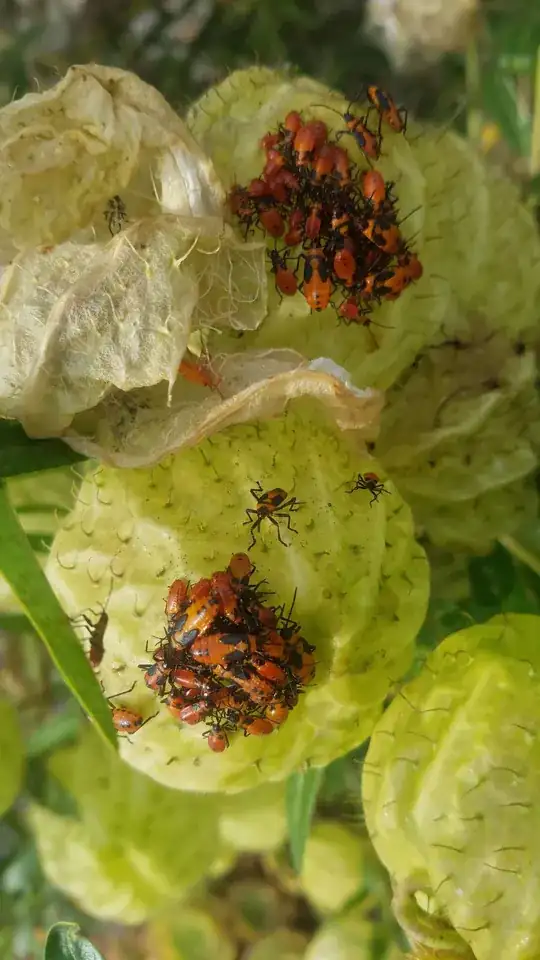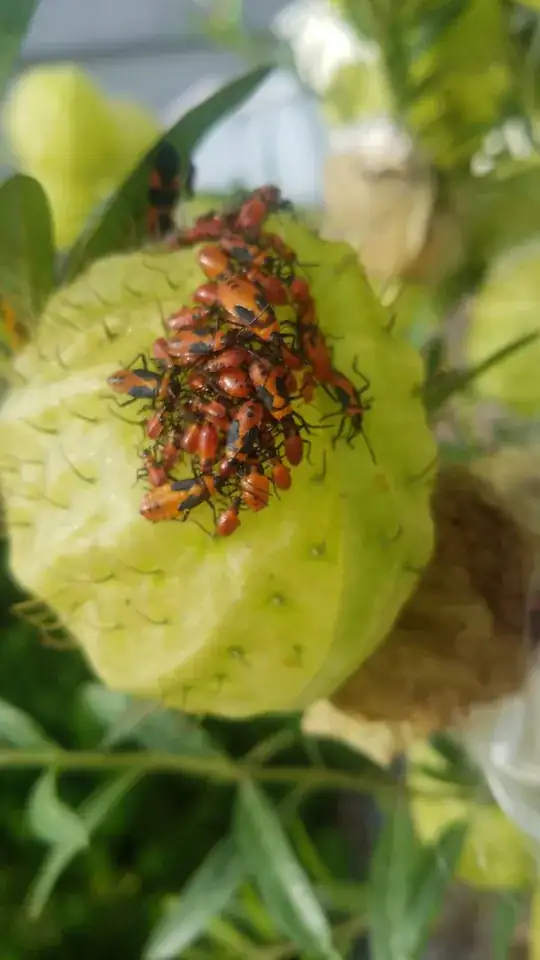I saw these taking over a balloon plant in the area of South Bay, LA (Redondo Beach, CA).
Are they beneficial insects?

Asked
Active
Viewed 232 times
3
Greentina
- 73
- 4
-
I don't think these are beneficials but they need ID for sure before any treatment. Take a look at these guys, Stink Bugs. What do you think? https://images.search.yahoo.com/yhs/search;_ylt=A86.JyhfQ7ZZNAwAz0onnIlQ;_ylu=X3oDMTEyYmg0NGU4BGNvbG8DZ3ExBHBvcwMxBHZ0aWQDQjQxMjJfMQRzZWMDc2M-?p=stink+bugs+pictures&fr=yhs-mozilla-002&hspart=mozilla&hsimp=yhs-002#id=364&iurl=http%3A%2F%2Fswanson-media.com%2Fphotos%2Flightboxes%2Fnature%2Finsects%2Ftrue_bugs%2Fstink%2Fsource%2Fimage%2F2014_0678.jpg&action=click – stormy Sep 11 '17 at 08:14
1 Answers
4
They're milkweed bugs, mostly immature ones in various stages. They're usually found on Asclepias - I'm not sure what you mean by Balloon plant, that common name is usually taken to mean Platycodon, but quite why they're on that plant I don't know. Milkweed bugs have piercing mouthparts and feed on milkweed, more information, and images of the bugs in various stages of development, here:
Ken Graham
- 475
- 1
- 5
- 13
Bamboo
- 131,823
- 3
- 72
- 162
-
Thanks Bamboo! I didn't know it was an asclepia. ID'd as Gomphocarpus Physocarpus / Balloon Plant after doing some search. There are tons of these bugs around here. – Greentina Sep 12 '17 at 07:48
-
Ah, right - Gomphocarpus being a type of milkweed, Well that explains the bugs' presence then! – Bamboo Sep 12 '17 at 11:40